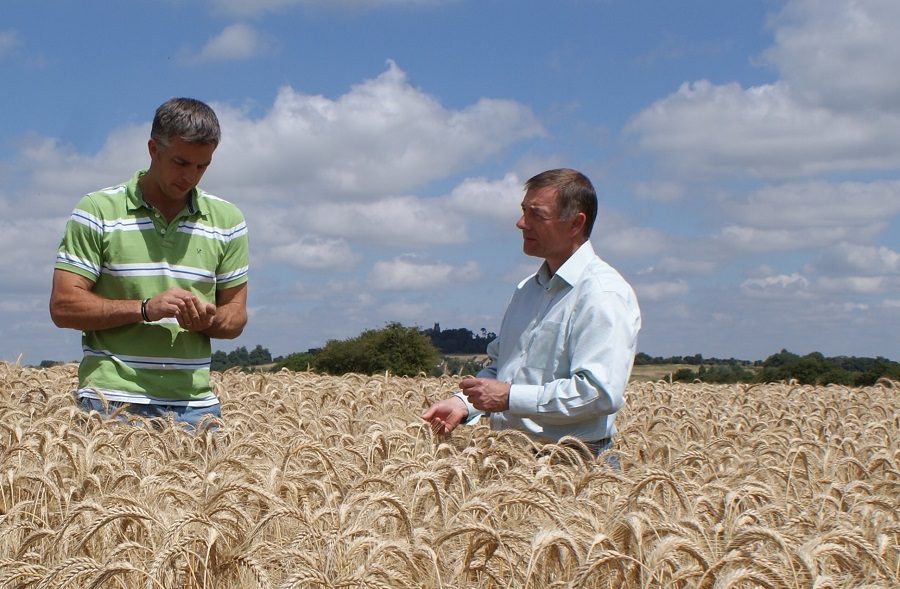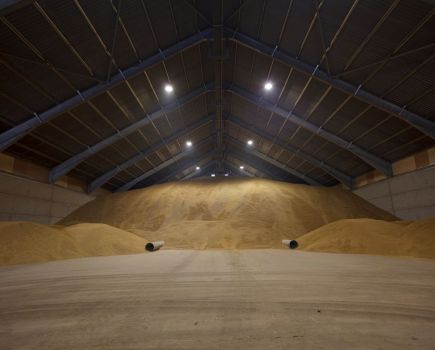A new payment-by-results agronomy service is being developed with UK growers, informed by a recent Nuffield Scholarship. CPM reports.
Many farm businesses may want to work with people who are prepared to put their money where their mouths are.
By Rob Jones
Last year, BASF and Bayer both announced plans for “outcome-based pricing”, where they share in the upside of a product with a pleasing performance but you pay less for one that falls flat. Now the model has been turned to agronomy advice.
The Agrii Farm Partnership (AFP) is centred on technical crop performance and uses a risk-share model, based on data from the company’s long-established grower benchmarking group.

Mark Dewes believes growers and agronomy providers are ready to move beyond advice and support paid for either per ha or in the price of inputs.
“My experience over the years, as both an independent and company agronomist, convinces me that forward-looking growers and agronomy providers are ready to move well beyond the traditional models of advice and support paid for either per ha or in the price of inputs,” insists Mark Dewes, responsible for developing and introducing the new business model. “That’s especially important as they face up to a post-Brexit world in which direct support payments will decline and arable margins are likely to come under increasing pressure.”
AFP involves growers and their Agrii agronomists agreeing target gross margins at set crop values, together with a share of any financial upside or downside at the start of each season. The difference between the actual margins and the targets for all the crops in the rotation then feeds through to a performance-based reward or repayment at the end of the year.
Mark points out that the evidence is fully costed, based on actual farm figures, while the plan is based on research-based intelligence provided by Agrii. This makes the company financially accountable for the performance of the inputs and advice it supplies. It encourages a shared sense of enterprise and commitment between growers and agronomists, he adds, designed to harness their joint expertise across all the aspects of crop management for the most sustainable cropping future.
He developed AFP following his 2018/19 Nuffield Scholarship, sponsored by the Richard Lawes Foundation. “This allowed me to exchange views and working practices with a wide range of agronomists, farmers, researchers and other industry specialists across Europe, South America and Canada,” explains Mark.
“Among other things, this convinced me of the importance of finding new ways of working that build on the close relationships we agronomists have with our customers to completely align our business interests and make us more accountable.
“Sharing the risks and rewards of crop management turns our relationship from a trusted supplier of advice and inputs into an invested partner. At the same time, a transparent, performance-focussed approach offers value in meeting the growing pressure our whole industry faces to demonstrate sustainability. Showing how we can use inputs to deliver the most cost-effective and sustainable performance has to be a key priority for us all.”
He found payment by results to be common practice in South America, although it’s rare in Europe. “It’s often based on yields as a simple measure of profitability, but it can involve more complex success criteria. Denillo, an agronomist I met in Brazil, for instance, is measured on all aspects of crop management, right down to the evenness of establishment of the soybean crops he looks after. This makes him especially keen to ensure the correct seed spacing before he considers which inputs to use.”
Working with a team of Agrii specialists over the past year, Mark been putting these insights to good use in developing an appropriate way of incentivising technical performance improvement for UK growers and their agronomists.
The focus has been to reward true productivity gains in a clear and accountable agreement between trusted partners using existing farm records and well-proven inputs and expertise.
“Gross margins are at the heart of our AFP risk-share model because they are the most important success criteria for us,” he explains. “Keeping other components of profitability like machinery, labour, finance and rent out of the equation ensures a complete focus on the return on input investment that is our primary responsibility.
He’s used Agrii’s MAP (Maximising Arable Performance) benchmarking service as the measurement resource for the model. All Partnership growers are enrolled free of charge, and it’s long been used to assess the financial value delivered by the company.
“Using its benchmark and historic farm performance data, we start off the season by agreeing gross margin targets for the performance of each crop in the rotation. We use a standard grain price throughout the process, leaving growers to market their produce as they wish. We also agree the extent of the risk-sharing at this stage so both parties are happy with the maximum movement of funds in either direction. The only rule we have here is that every pound above the line of expectation is matched by a pound below.
“The biggest factors determining gross margin are yield and price. We fix the price for the purposes of the model, but obviously also need to account for yield variations due to the season. To do this, we moderate the targets retrospectively according to national yield figures published by Defra. If the season gave yields of 10% above the long-term average, for example, we increase the target yield for the farm in question by the same percentage, and vice versa.
“This way the whole emphasis is fairly and squarely focussed on out-performing the season,” insists Mark. “That’s the measure of success by which we want to be judged.”
One of the big factors facing growers as BPS payments are reduced is cashflow. As part of the new Farm Partnership approach, Agrii is addressing this with associated working capital finance, at preferential rates and with repayment times matched to individual business needs. Priority access to strategic planning advice and exclusive end-use contracts for crops in demand are also part of the package.
The new business model is currently being piloted with a cross-section of growers and their agronomists across the country. This initial pilot will be extended more widely in the coming season alongside the company’s established supply-linked and acreage fee-based agronomy services.
“In future, agronomists in both the supply and independent sectors will have to be far more accountable for the success – or otherwise – of the crops they help to look after,” says Mark.
“Many farm businesses may want to work with people who are prepared to put their money where their mouths are and share in the risks of failure as well as rewards of success – people who will challenge them to improve, have the resources to make it happen and the financial interest in doing so. What AFP will do, more than anything else, is demonstrate the value our advice and products give in the way that really counts the most in helping to keep growers ahead.”




